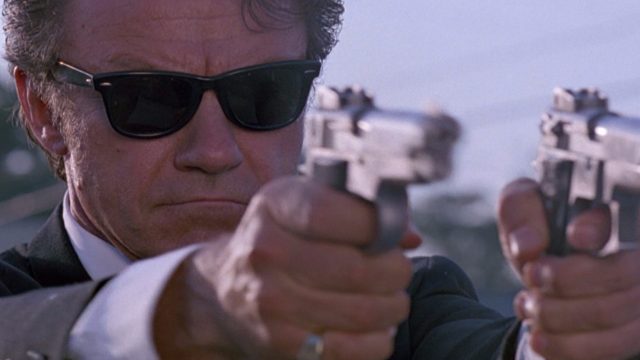I could talk about what’s good and what’s bad about this film; I’m sure we’ll have that discussion in the comments ‘cuz I’m also sure just about all of us have seen it. This is my favorite Tarantino, and although I can make an objective argument for almost any other film of his over this one, I don’t want to. This film isn’t so much good as formative for me, and for a lot of people I know; it has the same place in my life as Citizen Kane or 2001 has for people of earlier generations: it’s the film that awakened me to what film could be, in its pacing, framing, dialogue, performance, structure, cutting (and lack of cutting), use of music (and lack of music), in its understanding of white masculinity, in its love (there is no other word) of culture, in its portrayal of ownage as an almost visible force with its own agenda, and most of all in its rigor of morality and story. I’d seen and loved films before this, I’d even learned about them, but this is when I began learning them.
Reservoir Dogs wasn’t about irony, the label people who were old in the 1990s slapped on people who were young; it was the opposite. In 1992, I was a young man with a lot of uncertainty, beguiled by theory, able to question anything and unable to see the value of answers. I went to see this opening night largely because of Harvey Keitel and came out just under two hours later knowing some truths about storytelling that have never left me: characters can be just as immersed in their culture as you are; the bonds of friendship and love between people matter more than anything; “what you’re supposed to do is act like a fuckin’ professional,” which has gotten me out of bed and off to work more times than I can count; and most of all, storytelling is about action, about the choices people make and the consequences they face. Show the characters, show the choices, show the consequences, and then end the story.
Reservoir Dogs streams free for Amazon Prime subscribers.

